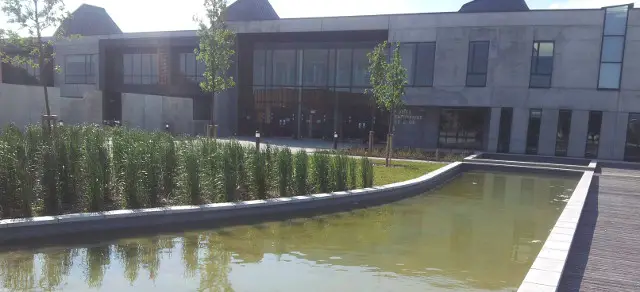Inspection reports by the Education Funding Agency (EFA) – the Department for Education’s delivery agency for funding and compliance – found poor quality of work and the lack of an ‘Independent Certifier’ on the Cowes Enterprise College build may have contributed to delays.
The school was originally due to open in December 2011, but is still not occupied.
The reports were obtained through an FOIA request which was initially refused by the EFA, but later released following a challenge, arguing the balance of public interest.
The EFA published the reports following inspections made in March and May 2013.
Isle of Wight council solely responsible
The report makes clear that the responsibility for delivering the scheme remained solely with the Local Authority (Isle of Wight council) throughout the project.
Funding for the £32m school had been paid directly to the council who were managing payments to the contractor, Pihl UK Ltd, the prime contractor selected by the Isle of Wight Council.
Around £31m in fees had been paid by March 2013 with the remaining c.£1m being held back by the Council, “as leverage to ensure that Pihl UK Ltd completes construction work to an acceptable standard”.
The Council previously responded to a BBC initiated FOIA request in March advising that the projected final project cost was £33,572,535.
Lack of ‘Independent Certifier’
In the March 2013 inspection report, it stated,
It appears that the Council did not employ an Independent Certifier to confirm that work was acceptable or complete which would be the more usual approach.
The report also attributed (amongst redacted items) to the delay, the contractor and sub-contractors being involved in court settlements; Health and Safety concerns relating to building structural issues, mechanical and electrical systems and poor quality finishing detailing.
Initial move
The March 2013 report reveals that the school initially moved all its equipment it into the new buildings, but subsequently discovered that most rooms were not completed.
In addition the building management system – which controls the heating and ventilation to the building – was not fully functioning or effective, and the buildings were nowhere near completed.
Suspended officers
The report refers to the suspension of two council officers (as reported by OnTheWight in November 2012).
He goes on to say that the new project team had “forged a good working partnership with the school senior team” but despite the major effort being made by the Council project team, “the contractor is proving very challenging to deal with”.
Necessary changes to ventilation
As reported yesterday, the planning department have just approved a variation on planning permission to allow 150 air conditioning units on the roof of the new college building.
Although part of the EFA report relating to the “complex issues” surrounding ventilation of the building has been redacted, it does confirm that the building “was originally to be naturally ventilated, but this has proved to be unsustainable and the contractor subsequently agreed to retrofit a mechanical and electrical system”.
This raises concerns for the College in terms of ongoing maintenance costs which were not originally budgeted for.
Considerable snagging list
During the site visit in March, a considerable snagging list, “of which many items are substantial and the majority are health & safety related” was revealed.
Some of the items listed were:
- Stairs which pupils can walk under, with the risk of head injury;
- Environmental controls and sensors behind doors and also often under coat hooks;
- Windows where the external wood trim will allow fingers to be trapped if opened;
- ‘Safety’ glass which does not appear to have a kite mark;
- Disabled toilet doors which are hinged to concertina and trap fingers;
- Two large feature ponds to the front of the school, the size of squash courts, which have almost 30cm of water in.
As well as the additional maintenance costs for the air conditioning units, the report concludes that the poor finishes on the building may well lead a costly maintenance programme to prevent the building from quickly deteriorating.
Parent company now involved
Following the May inspection, it was revealed that the Danish parent company for Pihl UK Ltd had provided considerable technical support and “there had been good progress with the work towards the completion of the snagging list and many outstanding items, including the numerous Health & Safety issues had been addressed and in most cases rectified”.
The EFA inspector has suggested that they (the EFA) assign an experienced Project Director who will review progress on a monthly basis and “assist in bringing together all parties and make recommendations as appropriate”.
Initial poor performance from council
The inspector’s conclusion was,
The Council underperformed initially with regard to the quality of its procurement processes, the level of contract management and the overall project management of the scheme.
Best efforts of the new project team are still being hindered by the contractor’s behaviour,
The new project management team has, however, developed a workable and realistic action plan, but despite a major and co-ordinated effort, has struggled to cope with the inherent construction and process problems caused by the contractor’s behaviour.
“Marked improvement”
The report finishes by acknowledging that considerable work had been undertaken on improving the quality of internal and external finishing detail, leading to a,
“marked improvement to the visual impact of the building”
Open in September for year 7
The report states that year seven pupils will be the first to occupy the College from September 2013, with a phased entry for each year group.
OnTheWight understands from school newsletters, subsequent to the EFA reports, that all students will now return on Monday 9th September to the new building.
The reports are embedded below for full details.




